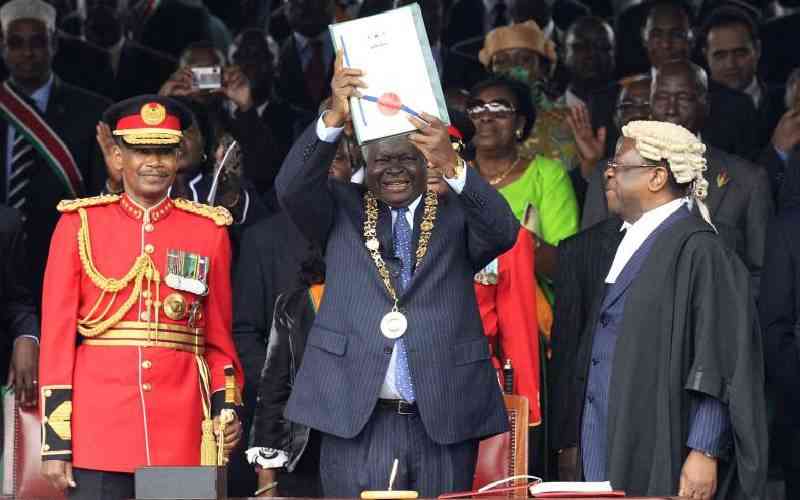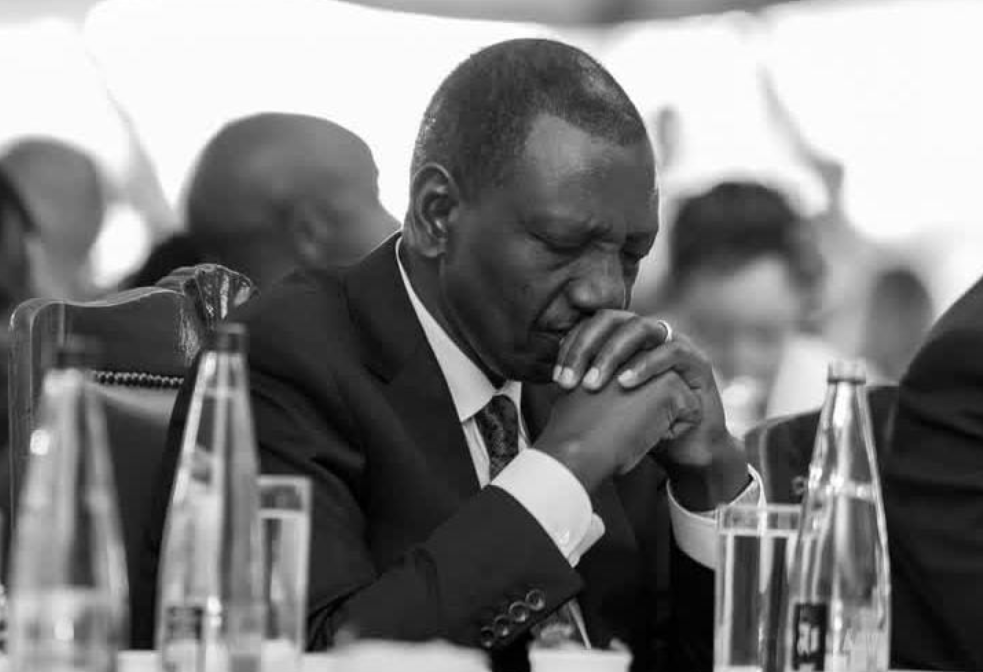Kenya's Constitution Under Siege: Ruto's Legacy and The Fight for Rule of Law

Kenya recently marked the 15th anniversary of the promulgation of its 2010 Constitution, a momentous occasion that occurred on August 27, 2010, at Uhuru Park grounds under the leadership of then-President Mwai Kibaki. This Constitution was not merely a political compromise but emerged from a prolonged struggle, significant sacrifice, and the profound yearning of a nation for dignity, justice, and a future that genuinely honors its humanity. It represents a covenant the Kenyan people gave themselves, extracted from reluctant hands through popular will, following years of state repression, detention without trial, political assassinations, land injustices, tribal clashes, and the systematic theft of national wealth. The annual Katiba Day serves as a reminder of this pivotal journey toward establishing a truly law-based nation.
However, the celebration of the Constitution's letter is often overshadowed by concerns regarding the abandonment of its spirit. The Constitution's spirit, as enshrined in its Preamble, Article 10's national values, and Article 1 vesting sovereignty in the people, demands transparency, participation, justice, equity, accountability, and the protection of the weak from the excesses of the strong. Despite its progressive framework, worries persist regarding its implementation. Critics point to alarming trends, including disregard for court orders, the weaponization of law enforcement, budgeting that neglects social rights outlined in Article 43, and a growing disconnect between governors and the governed. Specifically, the administration of President William Ruto faces accusations of strengthening violations, selectively applying constitutional provisions that favor it, and moving towards entrenching an authoritarian presidency.
The current challenges in constitutional implementation echo historical anxieties that have swept across Kenya every time a new constitutional order is established. Parallels are drawn to the period before Kenya's independence in October 1963, when the founding fathers deliberated at London’s Lancaster House. A crisis emerged as the Kenya African Democratic Union (KADU) staged a walkout, accusing the British government of conceding too much to the Jomo Kenyatta-led Kenya African National Union (KANU) and watering down the federal (majimbo) system. This led to threats of unilateral declarations of independence from both sides, illustrating the deeply divisive past that continues to haunt the nation. Even after independence, issues arose, such as governors demanding to fly national flags, mirroring controversies faced by former President Uhuru Kenyatta who, like his father, had to grapple with similar demands during his tenure as he steered Kenya’s devolved system of government. These historical patterns highlight a persistent struggle against centralizing tendencies and the executive's historical inclination towards constitutional piracy and betrayal.
Amidst these concerns, there are calls from some political elites for a new constitutional referendum to introduce what they term
You may also like...
Messi Mania Unleashed: Two Goals, One Assist as Inter Miami Obliterates Atlanta!
)
Lionel Messi delivered a sensational performance, scoring two goals and assisting one, as Inter Miami defeated Atlanta U...
Super Eagles Flight Terror: Mid-Air Scare Forces Emergency Landing!

Nigeria's Super Eagles faced a mid-air scare when their chartered ValueJet aircraft made an emergency landing in Luanda,...
Mutant Mania Unleashed: 'X-Men '97' Season 2 Gets 'Omega-Level' Updates and Teases Rogue-Magneto Romance!

Marvel TV boss Brad Winderbaum confirms the continuation of the Rogue and Magneto romance in <em>X-Men '97</em> Season 2...
Hollywood Loses a Legend: Diane Keaton Dies at 79, Industry Mourns Her Iconic Legacy

Academy Award-winning actress Diane Keaton has died at 79, sparking a wave of tributes from Hollywood stars and fans ali...
Botswana's Judiciary Under Siege: Non-State Actors Threaten Legal System

The Southern and Eastern Africa Chief Justices' Forum in Gaborone addressed critical issues of judicial independence and...
Shocking Death: Former Lostprophets Singer Ian Watkins Brutally Killed in Prison Attack

Ian Watkins, the disgraced former lead singer of Lostprophets and a convicted pedophile, has died at 48 after being fata...
Budget Bliss: Lidl's New Gadget Slashes Winter Bills by £275!

As colder weather sets in, Lidl is offering an affordable solution to combat household condensation and damp with its Tr...
Unveiled: Jennifer Aniston's Secret 29p Superfood for Staying in Shape!

Jennifer Aniston's diet secret, quinoa, is revealed to be a powerful superfood packed with health benefits. This gluten-...
